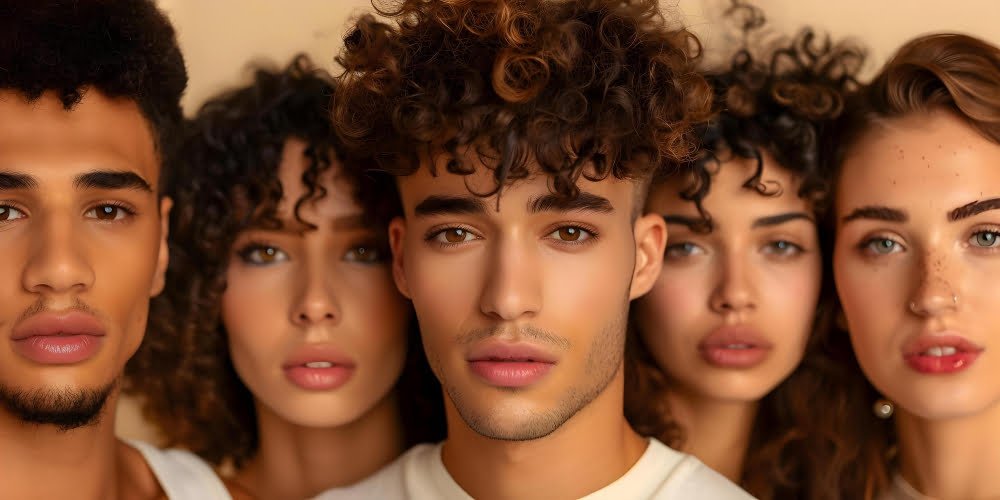Nowadays, it is impossible not to have heard about Korean skincare and how effective it is. From micro-level implementations that have been highly detailed to the macro-level, such as new combinations of ingredients, the trend has caught the world’s attention.
However, the question then arises: whether Korean skincare is actually transformative or whether it is only a marketing scam? Alright, let us explain to you what makes K-beauty special and whether people have a right to fall in love with it.
The Korean wave and dreams of soft and young skin.
The Korean skincare that people nowadays know as K-beauty has its background in the old Korean beautifying practices. but it rose to popularity only in the later decade following the popularity of K-dramas and K-pop, where the skins of idols and actors were perfect and porcelain-like. The Korean beauty industry that was once acknowledged for ideas and ingenuity has now become one of the most crucial of skincare solutions.
The K-Beauty Philosophy
The first principle of the K-beauty is the idea that everyone should have beautiful skin, clear and radiant, with the help of a detailed regimen. Here’s what sets it apart:
1. The 10-Step Routine
Korean skincare regimes are lengthy and can take up to 10 steps, and they are commonly known as ‘K-Beauty’ routines. This comprises processes such as oil cleansing and exfoliation and the use of essences as well as sheet masks. The concept here is to methodologically combine different approaches to skin care, making each stage purposeful in the process of skin’s nourishing and protection.
2. Layering Techniques
Korean skincare is synonymous with layering. The idea is that several products are used in a superficial manner, and each of them penetrates deep into skin layers and acts in concert. This approach is wanted to establish a base of skin health that consists of hydration and protection in order to make skin hard and glowing.
3. Innovative Ingredients
Korean skincare is associated with the employment of rather exotic and efficient ingredients. These include:
- Snail Mucin: It is famous for its properties that are rather helpful in rejuvenating the skin and making it soft and healthy.
- Centella Asiatica: Another plant that is considered for its ability to reduce inflammation and soreness.
- Hyaluronic Acid: A potent provitamin that locks water inside the layers of the dermis.
These ingredients are also largely found in the products that have targeted solutions for skin problems, such as wrinkles, dark spots, acne, dry skin, and many others.
Unearthing the Science Behind ‘the Routine’
Thus the question arises – is there any scientific evidence to support that marketing hype? In many cases, yes. The concept of Korean skincare is, in essence, aligned with basic standards of dermatology. For instance:
- Hydration: Skin hydration is another important feature that needs to be paid attention to, and many cosmetics created on K-beauty principles deal with water.
- Gentle Exfoliation: One of the effective methods is exfoliation, which should be done on a regular basis but without too much pressure so that the dead skin cells can be gently removed and the skin cells turnover can be enhanced, which is one of the significant steps in K-Beauty.
- Sun Protection: The most important step in the Koren skincare regimen is sunscreen, as it will suffice as protection against early aging and skin damage.
Looks Like K-Beauty Is Just Another Ploy in Marketing Jenkins.
Not that there is anything wrong with Korean skincare being marketed well, but getting through to this conclusion dead-on means that their skincare is not popular just because of its advertising appeal.
The industry has excelled in innovation as well as addressing customer needs; hence, it has had strong positioning. It goes without saying that not each product can be good for everyone. Every skin type and concern is unique and may have very different responses to even the best products on the market.
CONCLUSION
Thus, one cannot question that Korean skincare has influenced the beauty industry tremendously. The focus on water and the incorporation of new active ingredients into its products, as well as its excellent management of skincare, needs scientific support. That is why, despite the fact that marketing does contribute to K-beauty hits, the main concepts have in fact some advantages for a great number of people.
All in all, yes or no to K-beauty is and will forever remain a matter of skin care necessity or preference. While it is always with everything that has to do with beauty, one needs to be very careful and go for products that you need for your skincare.













